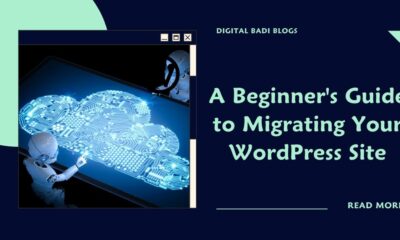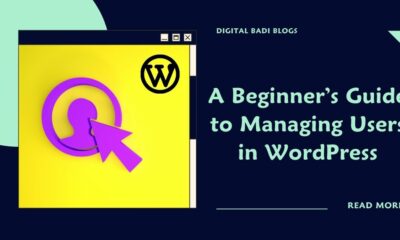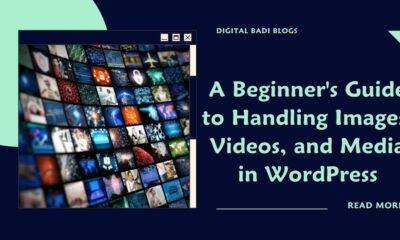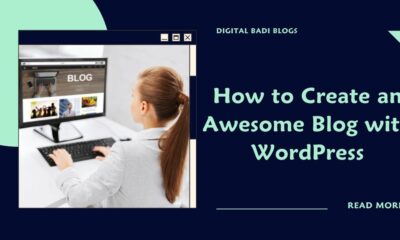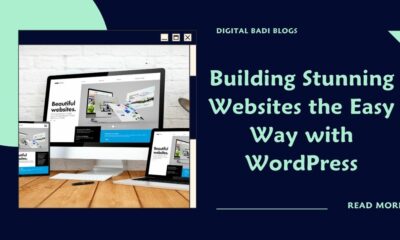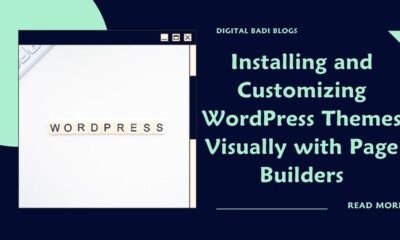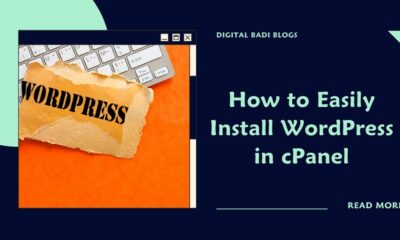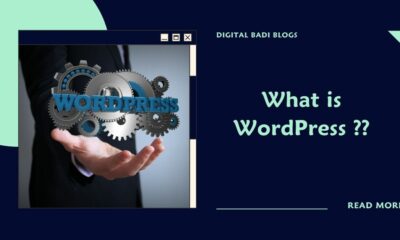Digital Marketing
Career Opportunities in Digital Marketing
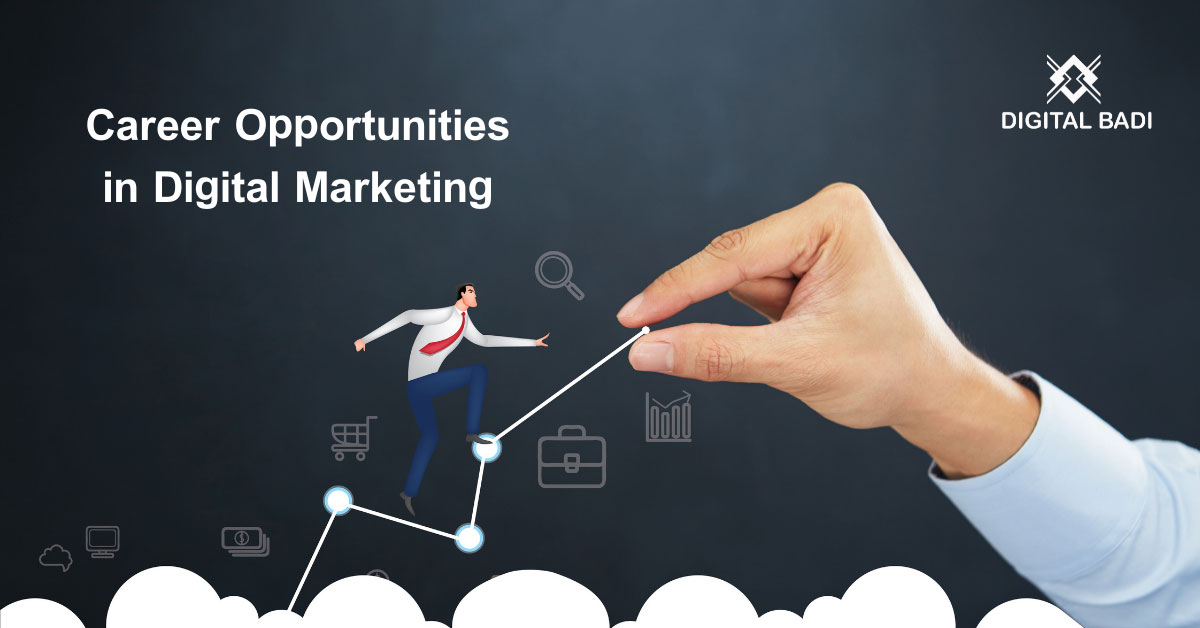
Table of Contents
Career opportunities in Digital marketing
In today’s digital era, a digital marketing career is one of the most sought-after career paths. Digital Badi: The Centre of Learning can help you advance your career,
In this blog, we’ll talk about the digital marketing job description, skills required to become a digital marketer, a day in the life of a digital marketer, and an overview of a digital marketing career.
Let’s get started
What does a Digital Marketer do?
- Digital Marketer Job Description
- How to Become a Digital Marketer?
- Best Jobs in Digital Marketing 2022
- Skills Required for Digital Marketing
- Types of Digital Marketing Jobs
- A day in the life of a Digital Marketer
- Digital Marketer Salary Overview
- Frequently Asked Questions
1.What does a Digital Marketer do?
With a rise in digitalization and online brand presence, digital marketing is skyrocketing like never before. After all these years, this one stream has managed to establish its stance even amidst the cut-throat competition. Every new business is seeking its presence online; hence, the need to have a professional digital marketer arises from there. It is estimated that in 2021, the global ad spend can reach 64.4% billion. up from 60.5% in 2020 and 52.1% in 2019
Digital advertising as a whole will exceed 60% of global ad spend for the first time in 2022, reaching 61.5% of total expenditure, and will increase its share to 65.1% by 2024. Television advertising remains the easiest route to mass-audience brand awareness, despite years of audience losses to digital media
With all these new numbers and glomming’s opportunities, do you wonder what a digital marketer does?
Digital marketing is a marketing technique that uses digital mediums to interact with customers. Digital marketers use various channels to reach their target audience, including social media, email, search engine optimization (SEO), display advertising, video marketing, and mobile marketing.
2.The job of a digital marketer includes the following tasks
- Planning and executing the company’s digital strategy
- Building relationships with customers on social media platforms such as Facebook, Twitter, and Instagram
- Creating content for the company’s blog or website
- Conducting market research using different data sources such as Google Analytics
- Developing and implementing email campaigns
- Designing landing pages that convert visitors into leads or sales
Digital Marketer Job Description:
Digital marketing is a fast-growing industry, and there are many carrer opportunities for people interested in this field. Digital marketers use social media, email, and search engine optimization to create promotional content and reach prospects. They also measure the success of their campaigns through analytics software such as Google Analytics, Adobe Analytics, and Hootsuite.
For example:
- A digital marketer’s day-to-day tasks may include:
- Creating promotional content such as blog posts or videos
- Communicating with clients through email or phone
- Optimizing websites, so they rank higher on search engines
3.The Role of a Digital Marketer
Digital marketing is one of the fastest-growing industries globally, and it is no wonder that this field has become a popular choice for many people. Digital marketers promote brands and products online using social media, email, search engine optimization, and other digital tools.
The role of a digital marketer is not limited to just managing social media accounts or sending out promotional emails to customers. They can also help companies grow their customer base by creating content and engaging with potential customers on various platforms.
However, digital marketing has different job roles, from designing marketing campaigns to maintaining and supplying the right content for a business campaign, managing social media engagement, and quantitative website traffic analysis. Being a digital marketer is a dynamic career opportunity for enhancing creative and tech skills.
4.How to Become a Digital Marketer?
Digital marketing is one of the fastest-growing industries in the world. There are many digital marketing carrer opportunities for people to take advantage of. There are many different ways to become a digital marketer, but the most popular way is to get a Digital badi training center to guide you with the knowledge and skills required to succeed.
Digital marketing is a growing industry. To get a foothold in this industry, you need solid skills and experience.
To become a digital marketer, you need to have an understanding of the following:
- Learn Digital Marketing Essentials.
- Work as an SEO Expert.
- Master PPC Advertising.
- Build Social Media Marketing Skills.
- Implement Content Marketing Campaigns.
- Learn How Email Marketing works.
- Build Team Management Skills.
- Learn How to Use Data Analysis / Reporting tools.
Best Jobs in Digital Marketing 2022
The digital marketing landscape is changing rapidly, and job opportunities follow suit. This blog guides you to some of the best digital marketing jobs you can get in 2022.
5.Digital Marketing Job Opportunities: The Future of Digital Marketing
The future of digital marketing is rapidly changing, and with it, so are the job opportunities for those who have the talent to survive in this new world. As we all know, there is a lot of competition for these jobs, and for those who have not yet started their career in this field, it may be challenging to find one.
Digital badi training center will be guiding you to some of the best jobs in digital marketing that you can get in 2022.
6.Digital marketing job types
1. Check out these top digital marketing jobs
- Digital Marketing Manager.
- Content Strategist.
- SEO and SEM Specialist.
- User Experience Designer.
- Data Analysts.
- Email Marketing Specialist.
- Internet of Things Marketing Specialist.
2. Digital Marketing Manager job description
- Planning digital marketing campaigns, including web, SEO/SEM, email, social media, and display advertising.
- Maintaining our social media presence across all digital channels.
- Measuring and reporting on the performance of all digital marketing campaigns.
3. Content Strategist job description
A content strategist’s job description constitutes
- Planning
- Designing
- Creating,
- Editing, and
- Publishing
relevant content based on the company’s business objectives and users’ needs. The strategist’s main job is to develop a content strategy that conforms to and sets out to achieve business goals
4. SEO and SEM Specialist job description
Search Engine Marketing Specialists (SEO/SEM) are responsible for planning, implementing, and managing the company’s overall SEO strategy. They usually cover various duties such as web marketing, web analytics, content strategy planning, link building, and keyword strategy.
5. User Experience Designer job description
UX (user experience) designers measure and optimize applications (usually web-based) to improve ease of use (usability) and create the best user experience by exploring many different approaches to solve end-user problems. However, UI designers focus more on designing the presentation and interactivity.
To make things easier for you, we’ve prepared this actionable nine-step guide on how to become a UX designer.
Find your area of interest. UX design is a broad discipline.
- Get educated.
- Find a mentor.
- Master the right tools.
- Get practical skills.
- Create a portfolio.
- Write about design.
- Connect with others
6. Data analyst job description
- Analyzing data using statistical techniques and providing reports.
- Developing and implementing databases and data collection systems.
- Acquiring data from primary and secondary sources and maintaining data systems.
- Identifying, analyzing, and interpreting trends or patterns in complex data sets.
7. Email Marketing Specialist
An Email Marketing Specialist writes engaging copy used in email marketing campaigns and programs. Depending on the size of the agency or company, the Email Marketer may also be responsible for developing the email campaign strategy and tactics to deliver persuasive messages.
- Five steps to becoming an email marketing expert
- Know how to write an attention-grabbing subject line.
- Perfect your copywriting.
- Gain an eye for design.
- Master how to build an email list.
- Understand email marketing analytics.
8. Internet marketing specialist job description
Digital marketing develops robust and innovative strategies to promote the business brand, products, and services. A digital marketing professional is expected to effectively use all marketing tools and techniques like PPC, SEO, SEM, email, social media, and display advertising.
7. Skills Required for Digital Marketing
Digital marketing is a growing field with many opportunities. It is essential for anyone looking to enter this field to have the right skillset.
The skills required for digital marketing vary depending on the type of job you are looking for. Here are some examples of skillsets that are in demand in the industry:
1.Content Creation:
Writing, editing, and creating content specifically for digital platforms like blogs, social media channels, and landing pages.
2. Social Media Marketing:
Creating content published on social media channels like Facebook, Twitter, Instagram, etc.
3.Digital Marketing Strategy:
Identifying target audiences and crafting a strategy to reach them through digital channels
4.Analytics & Data Management:
Gathering analytics data from various sources and organizing it into an easy-to-understand format
8.Types of Digital Marketing Jobs
There are many different types of digital marketing jobs. They range from being a social media manager to being a content marketer.
The following are the top digital marketing jobs:
- Social Media Manager
- Content Marketer
- Digital Marketing Manager
- Digital Marketing Analyst/Digital Analyst
- SEO Specialist/SEO Executive
- Analytics Specialist/Analytics Associate
- Creative Director
9.A day in the life of a Digital Marketer
It is not just about the day for a digital marketer, and it is about the career opportunities they can explore. Digital marketers have many job opportunities, ranging from social media marketing to content creation and management to e-commerce and web development.
The digital marketing career path offers many growth opportunities, both personally and professionally.
10.Digital Marketer Salary Overview
-
Search Engine Optimisation Specialist Salary
An entry-level digital marketing salary for a Search Engine Optimization Specialist with less than 1-year experience is an average of Rs.1,76,578 per annum in India. A Search Engine Optimization Specialist with less than four years of experience earns an average of Rs.234,460 in India. Search Engine Optimization Specialists with 5-9 years of experience can expect an average of Rs.4,58,532 in India.
(Source: Payscale)
-
Pay-Per-Click Analyst
An average salary of an entry-level PPC Analyst with less than one year of experience is around Rs3 lakhs per annum in India. A PPC Analyst with more than two years of experience can expect to earn an average of Rs.4-5 Lakhs per year in India.
(Source: Payscale)
-
Web developer’s salary
Web developers who can create and maintain attractive and user-friendly websites are certainly in high demand. Those who can meet these demands can expect a decent salary out of this profession.
An entry-level digital marketing salary of a Web developer with less than one year of experience is two lakhs per year in India. In contrast, those with more than 2-3 years of experience can expect Rs. 3-5 lakhs per year in India.
(Source: Payscale)
-
Social Media Marketing Specialist Salary
An entry-level digital marketing salary for a Social Media Marketing Specialist with less than one year of experience can earn an average of Rs 2,52,444 in India.
A Social Media Marketing Specialist with less than four years of experience can earn an average of Rs. 3,40,924. And those with 5-9 years of experience can expect an average of Rs.6,85,923 per annum based in India.
(Source: payscale)
-
Search Engine Marketing Specialist Salary
An entry-level digital marketing salary for a Search Engine Marketing Specialist with less than 1-year experience is an average of Rs.2,80,000 per annum in India. A Search Engine Marketing Specialist with less than four years of experience earns an average of Rs3,63,547 in India. Further, a Search Engine Marketing Specialist with over 5-9 years of experience makes an average of Rs.9,75,000 in India.
(Source: Payscale)
-
Data Analyst
An average entry-level digital marketing salary for a Data Analyst is ₹3lakhs in India. However, a data analyst with more than 2-3 years of experience can expect ₹4-5 lakhs per year in India.
(Source: Payscale)
-
Paid Media Specialist Salary
An entry-level Paid Media specialist can expect a salary of three lakhs per annum. In the beginning, your salary will increase as per your experiences and expertise. A paid media specialist with more than 2-3 years of experience can expect an average wage of Rs.5-6 lakhs per annum in India.
(source: payscale)
-
Digital Marketing Manager’s Salary
The average salary of a Digital Marketing Manager (entry-level) is 48,755 per annum in India. At the same time, a Senior Digital marketing manager’s salary ranges between Rs.7,09,800- ten lakhs, with over 5-9 years of experience in India.
Source: (Payscale)
-
Marketing Automation Specialist Salary
An average salary of an entry-level Marketing Automation Manager with less than one year of experience is four lakhs per year in India. A Marketing Automation Manager with more than 2-3 years of experience can expect an average salary of six lakhs per year.
(Source: Payscale)
-
Content Marketing Manager Salary
An entry-level digital marketing salary of a Content Marketing Manager is expected to be an average of Rs.4,79,323 in India. A Content Marketing Manager with less than four years of experience earns an average of Rs.5,13,369 in India. Whereas Content Marketing Managers with 5-9 years of experience can expect an average of Rs8,18,583 in India
(Source: Payscale)
-
Digital Marketing Salary Guide: 10-Year Plan
For the benefit of our readers, we’ve mapped out a 10-year plan based on years of experience. Here’s what you can expect your digital marketing salary to look like in the coming years:
| Experience | Job Title | Salary Range Per Month |
| 3-6 Months | Intern | Rs 5,000 – Rs 10,000 |
| 1 Year | Executive | Rs 15,000 – Rs 20,000 |
| 2 Year | Sr. Executive | Rs 30,000 – Rs 40,000 |
| 3 Year | Associate Lead | Rs 45,000 – Rs 50,000 |
| 4 Year | Team Lead | Rs 50,000 – Rs60,000 |
| 5 Year | Associate Manager | Rs 65,000 – Rs 80,000 |
| 6-10 Year | Manager/C-Suite | Rs 1,00,000+ |
Frequently Asked Questions
- What is digital marketing?
- What are the different aspects of digital marketing?
- How does digital marketing work?
- What is the difference between online and offline marketing?
- What are the different types of digital marketing services?
- How can I improve my website design to increase the conversion rate?
Conclusion
We hope this blog helped you gain a little more perspective on whether you want to take on this career path. Many other benefits of a digital marketing career result in many graduates and working professionals eyeing this career option.
We are providing Digital Marketing course in Hyderabad.
Contact us for FREE Demo of Digital Marketing.
Join in our Bigitalbadi Telegram channel for FREE workshops and updates.
John is a Digital Marketing Trainer and Blogger and YouTube creator with 5+ years work experience in digital marketing field. He is the founder of Digital Badi.
Digital Marketing
The Booming Scope of Digital Marketing in Hyderabad
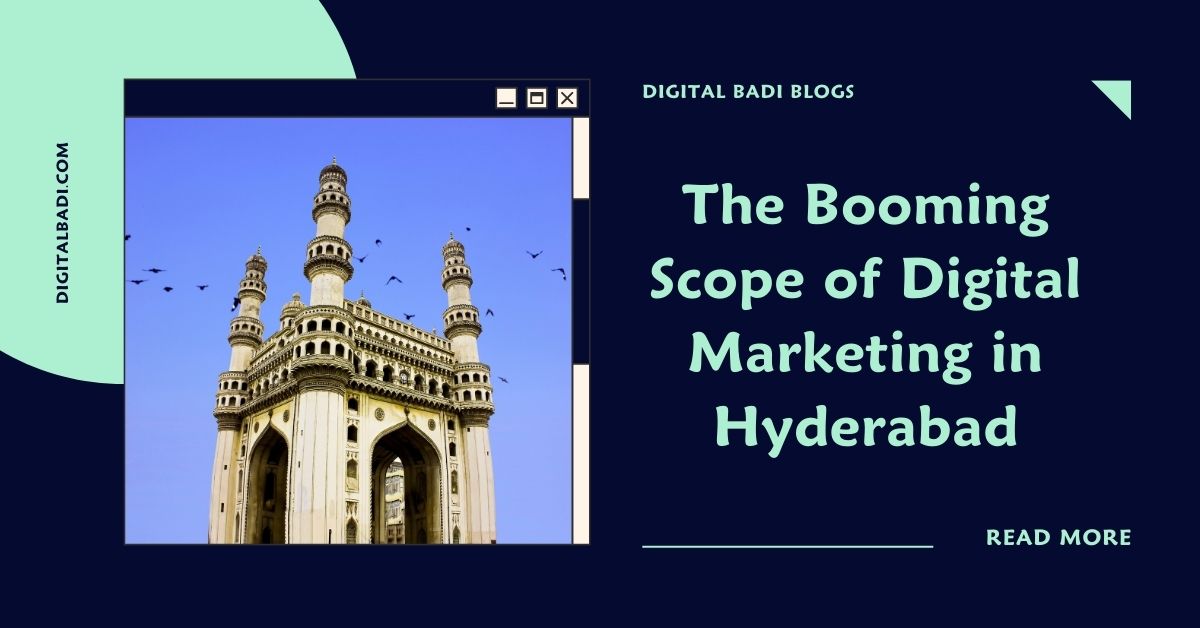
Table of Contents
Digital marketing has been growing by leaps and bounds in cities across India, and Hyderabad is no exception. Scope of digital marketing in Hyderabad is huge. No doubt about it. As more and more businesses realize the power of digital marketing for reaching and engaging with their target audience, the demand for skilled digital marketing professionals has skyrocketed in Hyderabad.
As the owner of Digital Badi, a leading digital marketing training institute in Hyderabad, I have witnessed first-hand the tremendous growth in digital marketing jobs and career opportunities in the city. In this blog, I’ll give you a in-depth look at why Hyderabad offers such great scope for building a successful career in digital marketing.
An Overview of Digital Marketing in Hyderabad
Hyderabad has established itself as a major IT and startup hub over the past decade. The city is home to companies like Microsoft, Google, Facebook, Amazon and more. In addition, there are thousands of startups operating in the city across various sectors.
Naturally, this thriving entrepreneurial ecosystem has led to a surge in demand for digital marketing skills. Businesses in Hyderabad have realized that digital marketing is essential for reaching their target audience online and driving business growth.
The most in-demand digital marketing skills in Hyderabad are:
- Search Engine Optimization (SEO)
- Search Engine Marketing (SEM)
- Social Media Marketing
- Content Marketing
- Email Marketing
- Digital Advertising
- Web Analytics
Whether you are looking for a job at a company or agency, or want to offer digital marketing services as a freelancer, there are ample opportunities available in Hyderabad.
Salaries for digital marketing professionals have also increased substantially over the past few years. The average salary for a digital marketer in Hyderabad is ₹5-7 lakhs per annum. With some experience under your belt, you can expect to earn ₹10 lakhs or more per year.
Why is Digital Marketing Booming in Hyderabad?
There are several factors that have led to the rapid growth of digital marketing jobs and careers in Hyderabad:
1. Thriving Startup Ecosystem
Hyderabad has established itself as the startup capital of India. The city has the third highest number of startups in India after Bangalore and Mumbai. These young companies are more receptive to leveraging digital marketing for getting traffic, generating leads and boosting sales.
Startups in Hyderabad are on the lookout for digital marketers who can help them with right from market research & planning to executing campaigns across channels like social media, SEO, PPC, and mobile. This creates ample job opportunities for digital marketing professionals in the city.
2. Presence of IT/Tech Companies
As mentioned earlier, Hyderabad has emerged as a major IT hub with offices of leading technology companies like Google, Facebook, Microsoft etc. These companies have an in-house marketing team with several digital marketing roles.
Technology companies also often work with digital marketing agencies for managing aspects like search, social media marketing and online reputation management. Professionals with the right skills can build a successful digital marketing career working with tech clients.
3. Government Initiatives
The Telangana government has launched various initiatives like T-Hub, WE Hub, TWorks etc. for boosting the startup ecosystem. The government has also partnered with Google to provide digital marketing training to youth and entrepreneurs.
Such initiatives that promote digital adoption among businesses also indirectly fuel the demand for digital marketing professionals and create more job opportunities in this field.
4. Digital Transformation of Businesses
From small businesses to large enterprises, companies across sectors in Hyderabad are embracing digital – launching websites, selling online, advertising on digital platforms and more. Even traditional businesses like real estate, healthcare, education institutes are now leveraging digital marketing.
This growing digital adoption by enterprises in Hyderabad is contributing to the rising demand for digital marketers. Businesses want dedicated digital marketing talent to help them formulate strategies, manage campaigns, track performance and generate ROI.
5. Availability of Training & Talent
Hyderabad has quality training institutes like Digital Badi that provide specialized training programs in digital marketing. Local colleges are also incorporating digital marketing subjects into their management and IT curriculums. This is helping produce qualified talent to meet the industry demand.
Besides, many professionals in fields like marketing, advertising, IT and MBA switch to digital marketing roles, given better prospects. The availability of such skilled talent in Hyderabad makes it easier for companies to fulfill their digital marketing requirements.
Lucrative Career Options in Digital Marketing
The massive demand for digital marketing skills in Hyderabad has opened up many lucrative career opportunities for professionals in this field. Let’s look at the top digital marketing job roles you can pursue:
Digital Marketing Manager
As a digital marketing manager, you will be responsible for developing strategies to boost brand awareness, traffic, leads and sales. You will also oversee the end-to-end execution of digital marketing campaigns across various channels.
In a startup, the digital marketing manager may be a one-man army managing everything. In bigger companies, you may supervise a team of specialists for different functions like SEO, Social media, Email marketing etc.
SEO Specialist: Scope of digital marketing in Hyderabad
SEO (Search Engine Optimization) specialists help businesses improve their visibility on search engines like Google and Bing. Your job will involve doing keyword research, optimizing website content, fixing technical issues on site, building high quality backlinks and tracking rankings.
As an SEO expert in Hyderabad, you can work with digital marketing agencies or as an independent consultant.
Social Media Marketing Expert
Every brand today wants to leverage platforms like Facebook, Instagram, Twitter, YouTube and LinkedIn to reach and engage with their audience. As a social media marketing pro, your job will be to create engaging content for social media, run paid campaigns, track performance, manage online reviews and more.
From devising content strategies to analyzing data, social media marketing involves a variety of roles you can specialize in.
PPC Specialist
PPC refers to Pay Per Click advertising on search engines and social media platforms. As a PPC expert, your core responsibility will be managing PPC campaigns end-to-end – from keyword research to creating ads to tracking conversion.
You will be expected to optimize campaigns to maximize clicks and minimize cost per click. This is a purely data driven role ideal for those who love analytics.
Digital Marketing Content Creator
Great content remains at the core of successful digital marketing. As a content specialist, you will be creating well-researched and high quality content assets like articles, whitepapers, ebooks, videos, infographics, guides, presentations and more.
Based on your skills and interests, you can create content for specific mediums – like writing for blogs, making videos, designing visual assets etc.
Web Analyst
Digital marketing campaigns result in tons of data related to website traffic, leads, sales, costs and so on. Web analysts use tools like Google Analytics to extract actionable insights from such data to inform business decisions and optimize digital marketing efforts.
Strong analytical skills and knowledge of data analytics tools are must-haves for succeeding in this role.
The above are just some of the high demand digital marketing roles available in Hyderabad. Some other profiles you can consider include email marketing specialist, marketing automation expert, digital media planner, web designer and more.
Salary Trends for Digital Marketing Jobs in Hyderabad
The rising demand for qualified digital marketing professionals in Hyderabad has led to very attractive salary packages for roles in this field.
Here’s a look at the typical salary range for top digital marketing job profiles in Hyderabad:
- Digital Marketing Manager: ₹5 – 12 lakhs per annum
- SEO Specialist: ₹4 – 8 lakhs per annum
- Social Media Marketing Expert: ₹4 – 10 lakhs per annum
- PPC Specialist: ₹4.5 – 10 lakhs per annum
- Digital Marketing Content Creator: ₹3 – 6 lakhs per annum
- Web Analyst: ₹3.5 – 8 lakhs per annum
Salaries in digital marketing depend on several factors like your experience, skills, certifications, company you work with and more. The above figures indicate the average salary ranges, but higher salaries are possible for senior roles and professionals with niche skills.
Overall, a career in digital marketing promises very high income potential provided you build expertise in the right skills.
Top Digital Marketing Skills to Build a Successful Career
To fully leverage the booming digital marketing job market in Hyderabad, make sure to build expertise in the following skills:
Digital Marketing Strategy – Ability to create targeted strategies for clients based on market research and goals.
Search Engine Optimization – Expertise in optimizing websites for higher search engine rankings.
Search Engine Marketing – Experience in PPC advertising and campaign optimization for Google/Bing Ads.
Social Media Marketing – Excellence in crafting engaging social media content and running ads on platforms like Facebook, Instagram etc.
Content Creation – Skills to develop all forms of content – articles, videos, infographics, ebooks etc.
Email Marketing – Understanding of email marketing strategies and experience with email automation platforms.
Web Analytics – Expertise in using tools like Google Analytics to derive actionable insights from data.
Google Certifications – Getting certified by Google in areas like Google Ads, Google Analytics etc. is a huge plus.
Digital Marketing Tools – Proficiency in using popular digital marketing tools and software platforms.
Communication & Presentation Skills – Ability to communicate digital marketing plans and insights effectively to clients.
Project Management Skills – Expertise in collaborating with team members, managing timelines and delivering projects.
By acquiring the above in-demand skills through specialized training, you can establish a successful and lucrative career in digital marketing in a thriving hub like Hyderabad.
How Digital Badi Can Equip You for a Digital Marketing Career
At Digital Badi, our flagship Certificate program is designed to help you master the most sought-after digital marketing skills and become job-ready.
Here’s a quick look at how we deliver comprehensive digital marketing training:
Industry Aligned Curriculum – Our curriculum is designed based on the latest digital marketing job requirements and industry standards.
Specialized Modules – You will undergo specialized training in different aspects like search marketing, social media marketing, content marketing, analytics, paid advertising and more.
Live Projects – Get hands-on experience by working on real-world digital marketing projects for brands.
Certification Programs – Option to do certifications like Google Ads, Google Analytics, HubSpot etc. during the program.
Expert Educators – Leading digital marketing experts guide you through interactive instructor-led online sessions.
Job Preparation – Get assistance with resume building, mock interviews and access to recruitment partners.
Flexi Scheduling – Attend sessions as per your convenience during weekdays, weekends or evenings.
The 2 months Digital Marketing Certification program provides end-to-end training required to launch a successful digital marketing career even if you are a complete beginner.
Start Your Digital Marketing Career in Hyderabad Now!
Hyderabad offers a world of opportunities for digital marketing professionals to build expertise, earn attractive salaries and grow their careers.
The demand for qualified digital marketers will continue to surge as more companies adopt digital platforms. There has never been a better time than now to get trained in digital marketing skills and be career ready.
I highly recommend aspiring digital marketers in Hyderabad to enroll in Digital Badi’s industry-recognized Certificate program to kickstart their career in this highly rewarding field.
You will acquire in-depth digital marketing knowledge, get hands-on project experience and one-on-one career mentoring from experts. We will equip you with all the right skills and provide placement assistance to help you succeed.
If you have any queries regarding our courses or want to know more about building a digital marketing career in Hyderabad, feel free to contact us. Our education advisors will be happy to guide you.
John is a Digital Marketing Trainer and Blogger and YouTube creator with 5+ years work experience in digital marketing field. He is the founder of Digital Badi.
Digital Marketing
Best Digital Marketing Trainer in Hyderabad
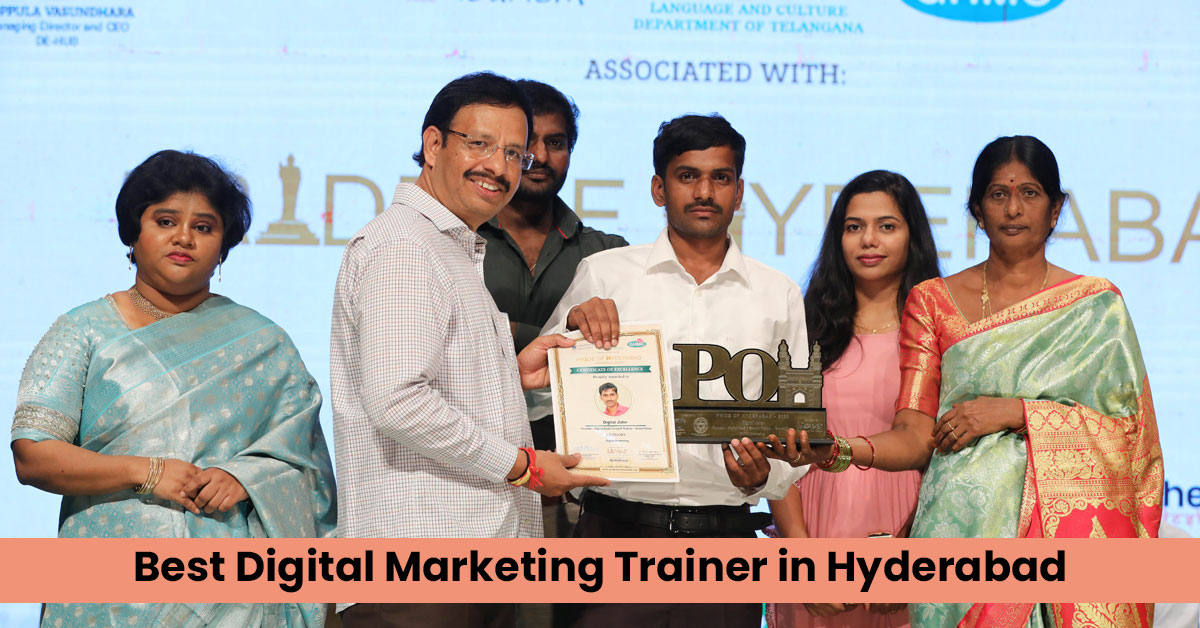
Table of Contents
Who is the Best Digital Marketing Trainer in Hyderabad?
If you’re looking to launch or grow your career in digital marketing, finding the right trainer in Hyderabad is key. With so many options out there, it can be tough to identify who truly is the best of the best when it comes to digital marketing training.
Well, look no further – because in my humble opinion, I’m Hyderabad’s top expert when it comes to digital marketing corporate training. Allow me to introduce myself.

My Name is Digital John – The Leading Digital Marketing Trainer in Hyderabad
Hi there! I’m Digital John, Founder of Digital Badi and a seasoned digital marketing professional with years of experience both practicing and teaching digital marketing. I’ve been providing specialized digital marketing training here in Hyderabad since 2018.
Over the years, I’ve trained thousands of students through online and offline courses. My training methodology is hands-on and practical, focused on real-world application over theory. The proof is in the pudding – many of my students have gone on to launch successful careers in digital marketing.
But I’m getting ahead of myself! Let me tell you more about why I believe I’m the cream of the crop when it comes to digital marketing training in Hyderabad.
Why I’m Convinced I’m Hyderabad’s #1 Digital Marketing Trainer
I don’t say this to brag – but because I’m confident my experience, credentials, teaching methodology, and student results make me uniquely qualified as Hyderabad’s top digital marketing trainer.
Here’s why I stand out from the competition:
Unmatched Experience & Credentials
- 5+ years specifically providing digital marketing training here in Hyderabad. That’s more specialized experience than most trainers in the city have.
- MBA in Marketing from a leading business school, so I have strong foundational knowledge.
- 2 years experience as a Digital Marketing Manager at a top firm before focusing on training. So I know firsthand what skills matter in the real-world.
- 40+ digital marketing certifications under my belt and counting, so I’m always upgrading my own skills.
- Meta Certified Digital Marketing Trainer – I’m one of the few with this prestigious credential in Hyderabad.
You won’t find many other trainers in Hyderabad who can match this level of specialized experience in both digital marketing practice and training. The proof of my expertise is in the results…
Successful Student Outcomes
Like I said earlier, you can judge a digital marketing trainer by the success of their students. And mine speak for themselves:
- Hundreds of students have landed digital marketing jobs at top companies here in Hyderabad after taking my training.
- Many students have gone the freelancing route and now offer digital marketing services successfully to businesses across India.
- I’ve trained numerous startup founders and existing business owners who have used digital marketing to grow their ventures after taking my courses.
- Top firms like GAIL have hired me to provide corporate digital marketing training for their employees.
You don’t need to take my word for it either. Here are just a couple of success stories from students:
Digital John Sir helped me to upgrade and took me to the next level. Before completing my course I got an internship offer from one of the MNC and I am so thankful to John sir. If you want to learn digital marketing course in Hyderabad, then consider Digital John
– Sindhuja (Working in Zoho Company now)
What I like about Digital John’s teaching style is he doesn’t overhype the process. He simplifies it, gives real-life examples. He also gives very clear information on how a particular process creates ripple effect with respect to your brand awareness. Overall, I totally enjoyed my learning experience and I would definitely recommend
– Sahithya Srinivas (CEO, Binge Club)
The proof is out there – just look at the successful careers my past students have built for themselves after taking my training programs. That’s the ultimate benchmark for any digital marketing trainer.
Watch few video testimonials
Effective Teaching Methodology
It’s not just my credentials and student results that set me apart. My hands-on teaching style and customized course curriculum are a cut above the rest.

Here are some of my key training methodology strengths:
- Practical focus: I emphasize real-world application over theory. Each student works on live digital marketing projects.
- Customized curriculum: I tailor course topics to each student’s goals and needs.
- Up-to-date strategies: I constantly update course content to cover the latest and greatest digital marketing strategies.
- Engaging delivery: I incorporate interactive elements like case studies, Q&As, and role playing to bring lessons to life.
Students learn best by doing – so that’s my philosophy. Every student gets hands-on experience actually running digital marketing campaigns. This builds tangible skills and also gives them projects to showcase to future employers.
The Digital Marketing Training Topics I Cover
My digital marketing courses cover all the key topics and skills every digital marketer needs to succeed. Here’s a quick overview of some of the main areas my training programs dig into:
Search Engine Optimization (SEO)
- Keyword research
- On-page optimization
- Technical SEO
- Local SEO
- Link building
Pay-Per-Click (PPC) Marketing
- Google Ads
- Facebook & Instagram Ads
- PPC strategy and setup
- Bid management
- Conversion tracking
- Facebook marketing
- Instagram marketing
- LinkedIn marketing
- YouTube marketing
- Twitter marketing
- Content strategy
- Blog writing
- Video content creation
- Podcasting
- Email marketing
- Google Analytics
- Dashboard creation
- Goal tracking
- A/B testing
- Reporting
And Much More!
- Influencer marketing
- Affiliate marketing
- Marketing automation
- Conversion rate optimization
- SEO copywriting
This comprehensive curriculum covers everything today’s digital marketer needs – from hard skills like PPC to soft skills like copywriting.
The exact topics covered depend on each student’s specific goals. The training is customized, after all!
Why I’m Your Best Choice for Digital Marketing Training
By this point, I hope I’ve made a strong case for why I believe I’m the top choice for digital marketing training in Hyderabad and surrounding areas:
- Proven experience: 5+ years specifically providing digital marketing training in Hyderabad sets me apart.
- Exceptional credentials: Including an MBA in Marketing and over 40 certifications.
- Successful students: Many have landed careers or grown businesses after my training.
- Customized training: Each student works on real projects tailored to their goals.
- Up-to-date strategies: I constantly refine my curriculum to teach the latest tactics.
- Engaging delivery: My fun-filled interactive teaching style brings digital marketing to life.
Don’t just take my word for it. The proof is out there in the stellar careers past students have built after taking my courses.
If you’re looking to launch or advance your career in digital marketing – whether through employment or starting your own agency/business – I’m confident my training can unlock your future.
Awards
I received Vidya Ratna award from Govt of Telangana
I received Pride of Hyderabad Award from Vishwanath Channappa Sajjanar Garu
I received Vande Bharat Award from Govt of Telangana

Next Steps to Advance Your Digital Marketing Career
If I’ve piqued your interest, here are a few next steps to learn more about my digital marketing training:
- Browse my website to check out digital marketing course in hyderabad details, curriculum, and student testimonials.
- Follow me on Facebook & Instagram to see student success stories and digital marketing tips.
- Reach out by phone or email so I can learn more about your career goals and advise the ideal training options. (+91-7702059834 or bairapagajohn@gmail.com)
- Check out my YouTube channel for a preview of my digital marketing training style through some free video lessons and tutorials.
I’m thrilled to have the opportunity to help unlock careers for even more digital marketing students and professionals here in Hyderabad. Don’t let this opportunity pass you by – take that first step and get in touch today!
John is a Digital Marketing Trainer and Blogger and YouTube creator with 5+ years work experience in digital marketing field. He is the founder of Digital Badi.
Digital Marketing
What are the Job Opportunities After Completing a Digital Marketing Course?
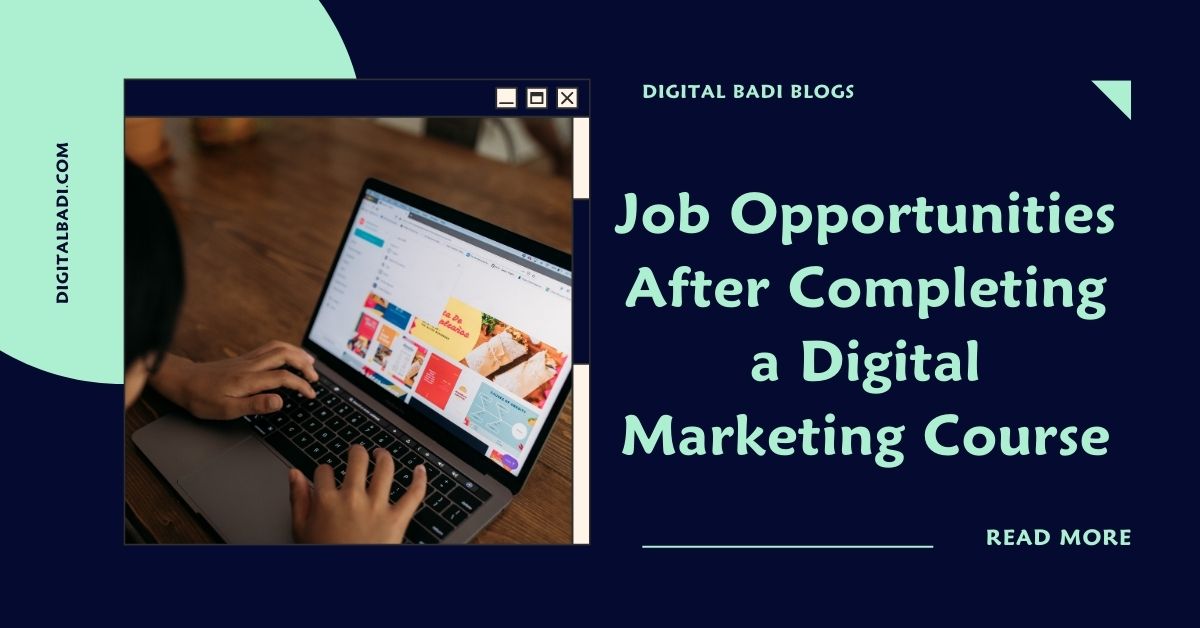
Table of Contents
Job Opportunities After Completing Digital Marketing course
Hey everyone! This is John, founder of Digital Badi. In this post, I’ll overview the top digital marketing job roles you can pursue after completing our certification course.
With businesses rapidly adopting digital channels, demand for skilled digital marketing professionals is surging. As per LinkedIn’s 2022 Emerging Jobs Report, digital marketing jobs have grown over 100% annually in India!
Job opportunities after digital marketing: Because of the high demand, the pay for digital marketing roles is also high. You can get better roles in the organization because of your expertise, which can help you enhance your salary.
Let me give you an idea of the diverse career paths you can take with digital marketing skills:
Digital Marketing Executive/Manager
This is one of the most popular and lucrative roles you can aim for as a digital marketing fresher or professional.
Digital Marketing Executives conceptualize and execute campaigns across channels like SEO, social media, email, PPC ads, content marketing, and more. You get to manage end-to-end strategy and activation.
With 3-5 years of experience, you can progress to a Digital Marketing Manager role with more autonomy and responsibility. Managers oversee a team and digital marketing budgets.
The job involves things like:
- Developing integrated digital strategies
- Implementing multi-channel campaigns
- Tracking KPIs and optimizing based on data
- Driving brand awareness, traffic, leads, and sales
- Overseeing content production
- Managing junior executives and agencies
This role provides the perfect mix of creativity and analytics. You get to brainstorm innovative campaigns and also track ROI.
SEO Executive/Manager
SEO (search engine optimization) is a fast-growing sub-domain within digital marketing.
As an SEO executive or manager, you oversee activities like keyword research, on-page optimization, technical SEO, content creation, link building, and monitoring rankings.
You’ll work closely with content and web development teams. The focus is on optimizing websites/apps to improve their visibility and rankings on search engines like Google and Bing.
Social Media Manager
Social platforms are essential in digital marketing plans today. Brands constantly need creative people to manage their social media presence.
As a social media manager, you oversee your brand’s social media strategy and presence across platforms like Facebook, Instagram, Twitter, LinkedIn, YouTube, Pinterest etc.
Your role involves creating engaging social content, running campaigns and ads, analyzing performance data, collaborating with influencers, managing communities and more.
PPC Specialist
PPC or Pay Per Click involves running ads on search engines and social media platforms. Skilled PPC specialists are in high demand.
As a PPC expert, you will manage ad campaigns on Google Ads, Bing Ads, Facebook, Instagram etc. This includes things like managing bids, optimizing ads, A/B testing ad creatives, leveraging targeting options, and tracking ROI.
Email Marketing Specialist
Email marketing is still highly effective for customer engagement and retention.
Email marketers handle everything from designing email campaigns, writing compelling content, segmenting audiences, automating workflows, sending blasts, optimizing deliverability, and tracking performance.
This role mixes copywriting skills with data-driven optimization. You get to directly impact metrics like open rates, click rates, conversions, and revenue through email campaigns.
Web/App Analytics Manager
Every website and mobile app requires in-depth analytics to derive user insights.
As a web or app analytics manager, you’ll be responsible for tracking key metrics, optimizing user funnels, implementing tagging, segmenting users, visualizing data, identifying trends and opportunities, and driving growth.
Content Marketing Specialist
Content marketing involves creating blogs, articles, guides, videos, and other content formats to attract and retain users.
As a content specialist, you research topics, produce content briefs, write blogs/articles or scripts, promote content across channels, and track content performance. This role requires strong writing skills coupled with data-driven optimization.
Let me also give you an idea of salary ranges based on my industry experience:
- Digital Marketing Freshers – ₹2.5-3.5 LPA
- Executives (2-4 years) – ₹5-8 LPA
- Managers (5+ years) – ₹10-15 LPA
Top companies like Accenture, Capgemini, Dell, TCS, Cognizant, and Tech Mahindra regularly hire digital marketing professionals. Other sectors like ecommerce, healthcare, finance, and education also recruit digital marketers.
I hope this gives you a good overview of the diverse options you have after completing a digital marketing certification or course. The industry demand and rewards are high for skilled digital marketers.
Do share in the comments if you have any other questions. I’m always happy to guide you on building a rewarding digital marketing career!
John is a Digital Marketing Trainer and Blogger and YouTube creator with 5+ years work experience in digital marketing field. He is the founder of Digital Badi.
-
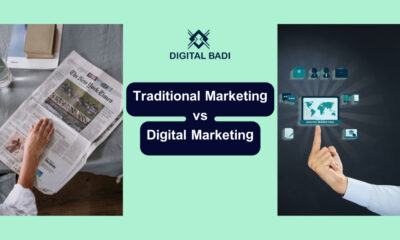
 Digital Marketing2 years ago
Digital Marketing2 years agoTraditional Marketing vs Digital Marketing
-

 Telugu Blogs2 years ago
Telugu Blogs2 years agoడిజిటల్ మార్కెటర్ కి ఉండాల్సిన స్కిల్స్ ఏంటి?
-

 Telugu Blogs2 years ago
Telugu Blogs2 years agoడిజిటల్ మార్కెటింగ్ నేర్చుకోవడం ఎలా ?
-

 Graphic Designing2 years ago
Graphic Designing2 years agoCareer Opportunities in Graphic Designing
-

 Digital Marketing2 years ago
Digital Marketing2 years agoStory of Rakesh Bandari (Rakesh Ranks)
-

 Telugu Blogs2 years ago
Telugu Blogs2 years agoప్రీలాన్సింగ్ ద్వారా ఆన్లైన్లో డబ్బులు సంపాదించడం ఎలా?
-

 Digital Marketing2 years ago
Digital Marketing2 years agoSearch Engine History
-

 Video Editing2 years ago
Video Editing2 years agoCareer Opportunities in Video Editing

